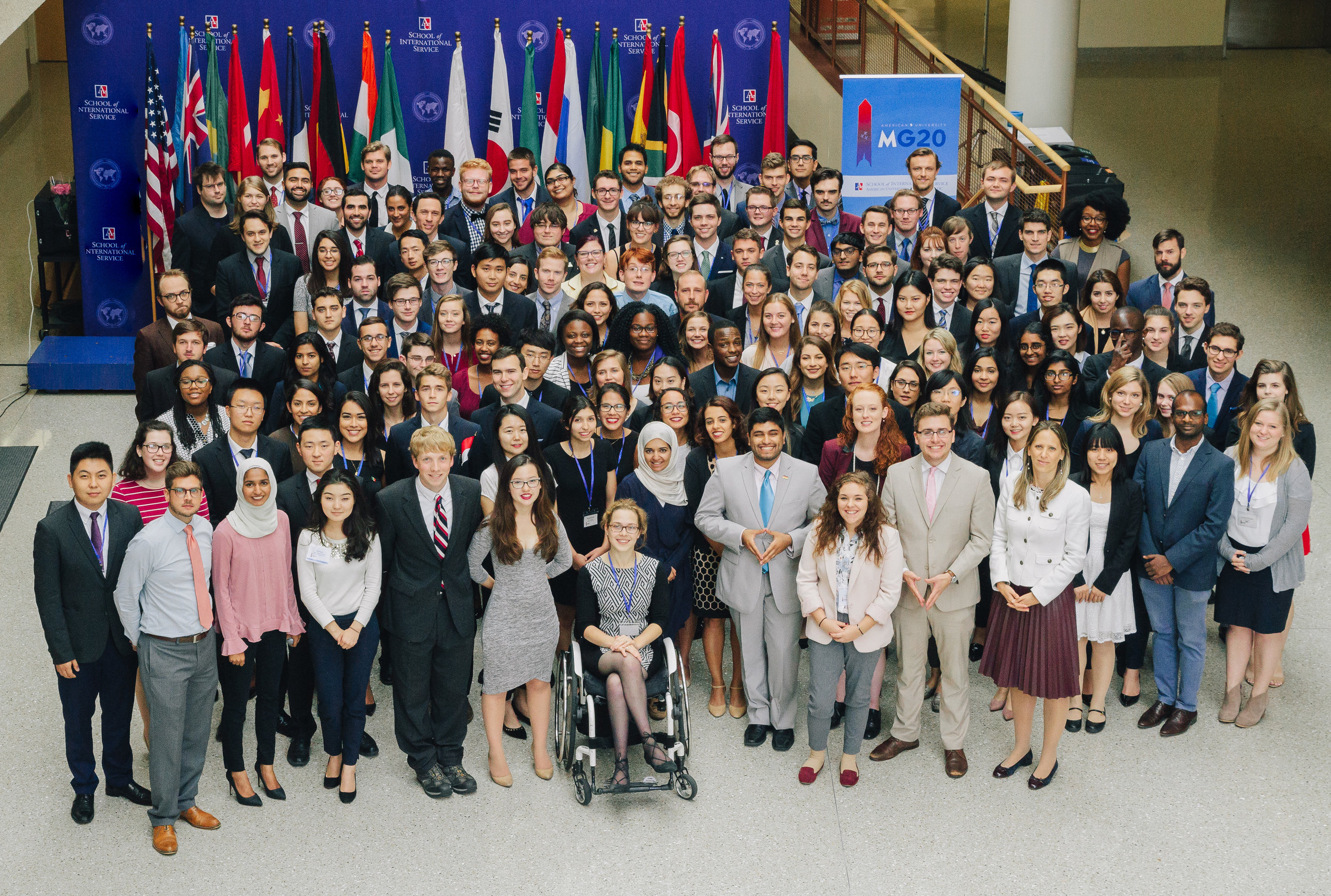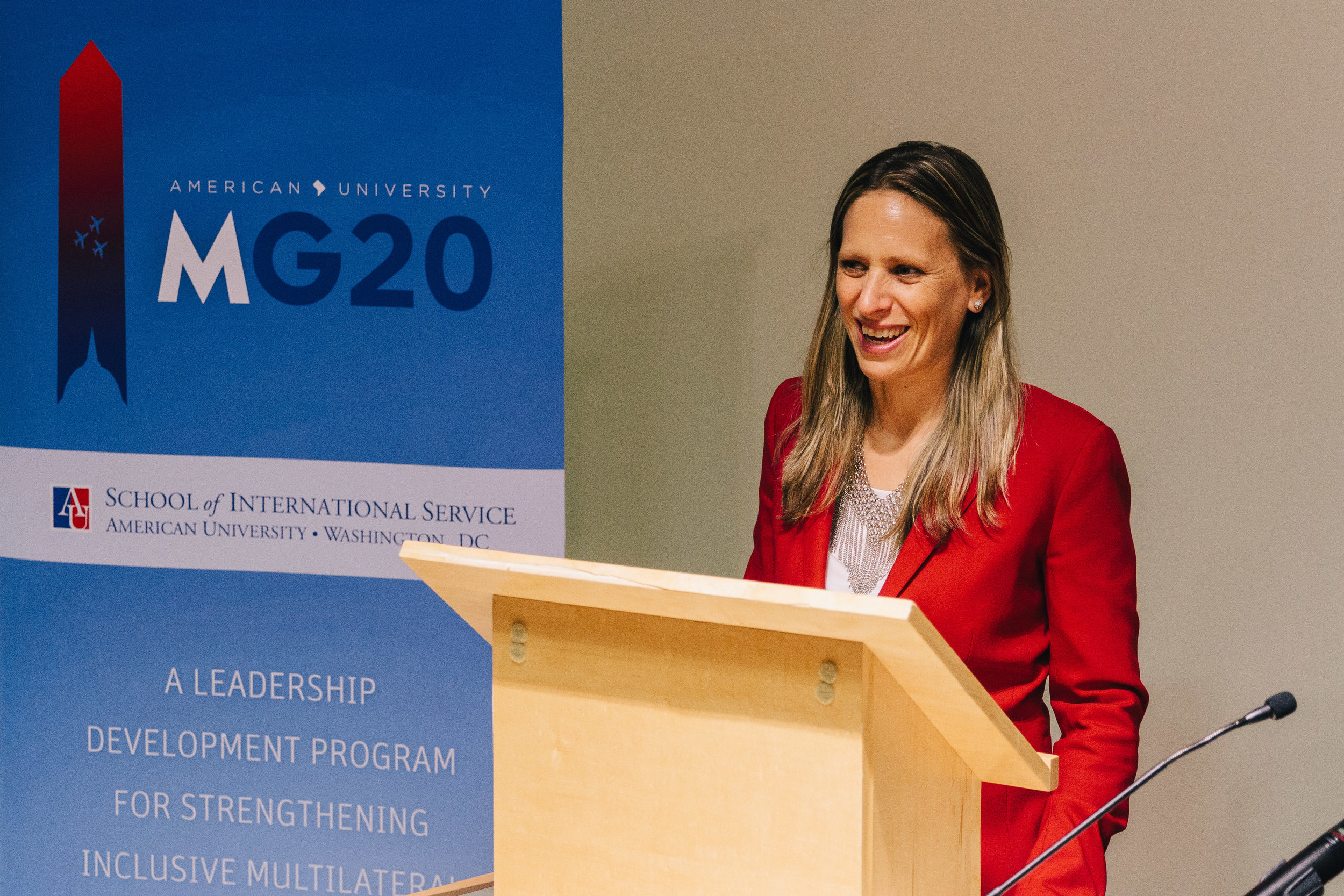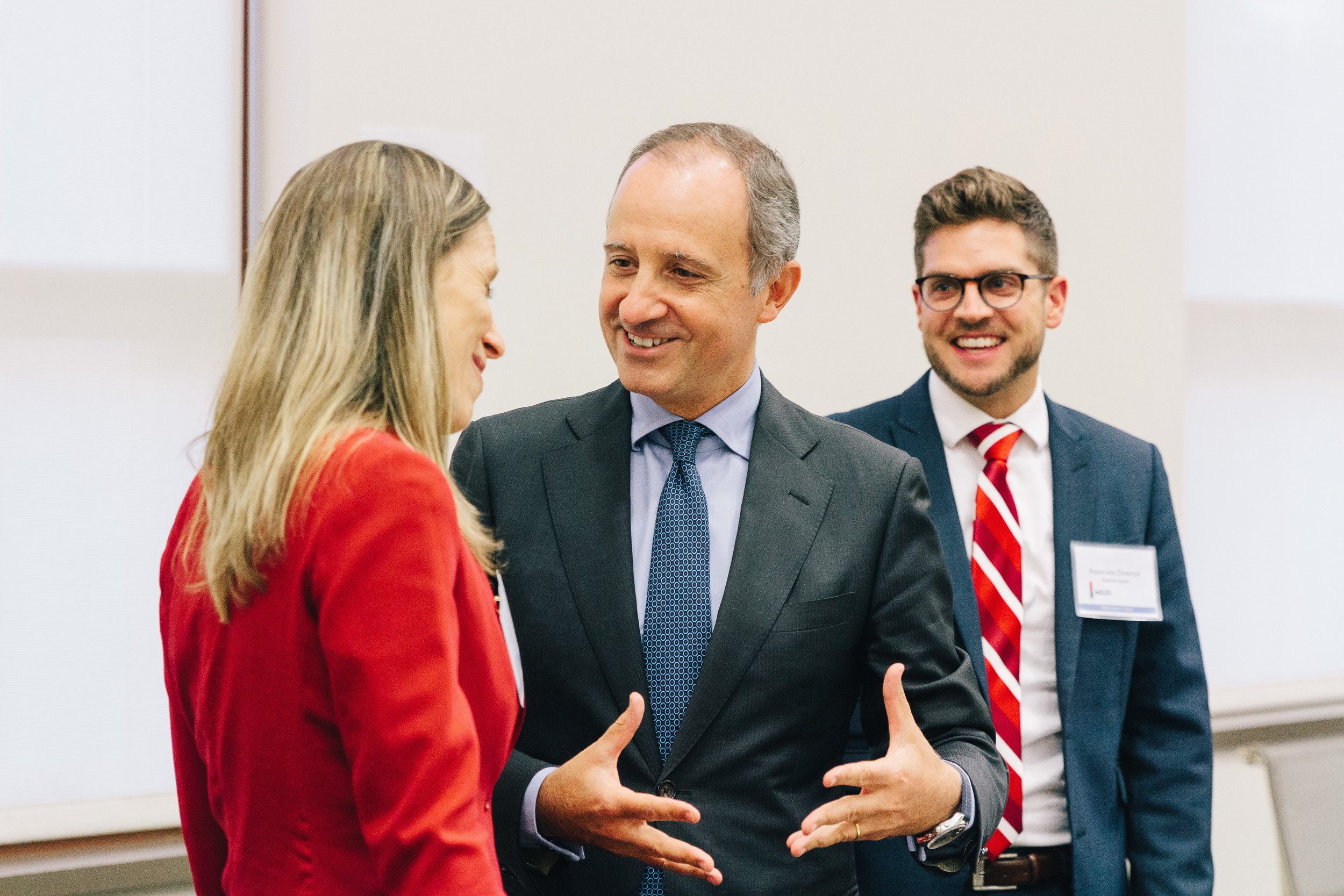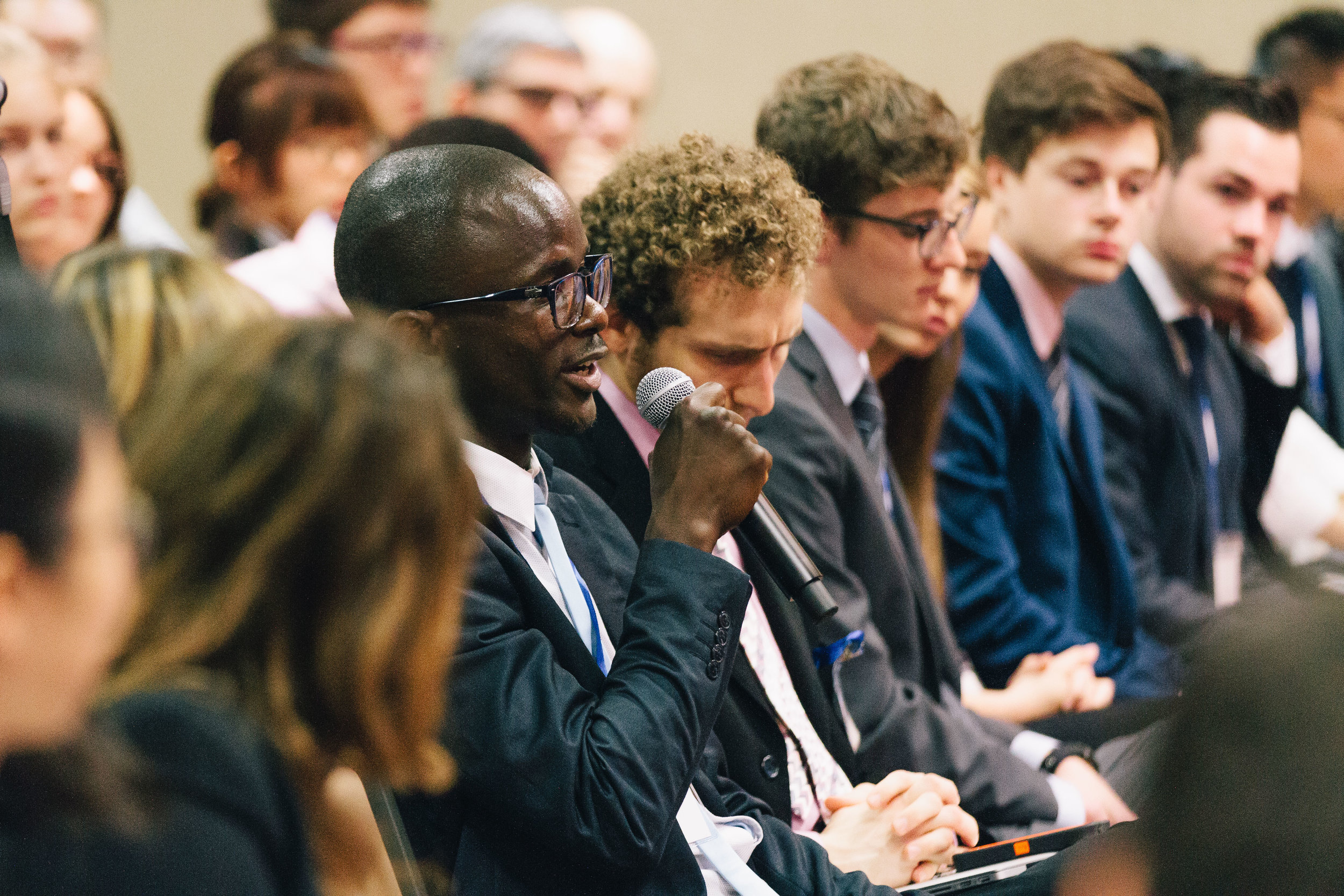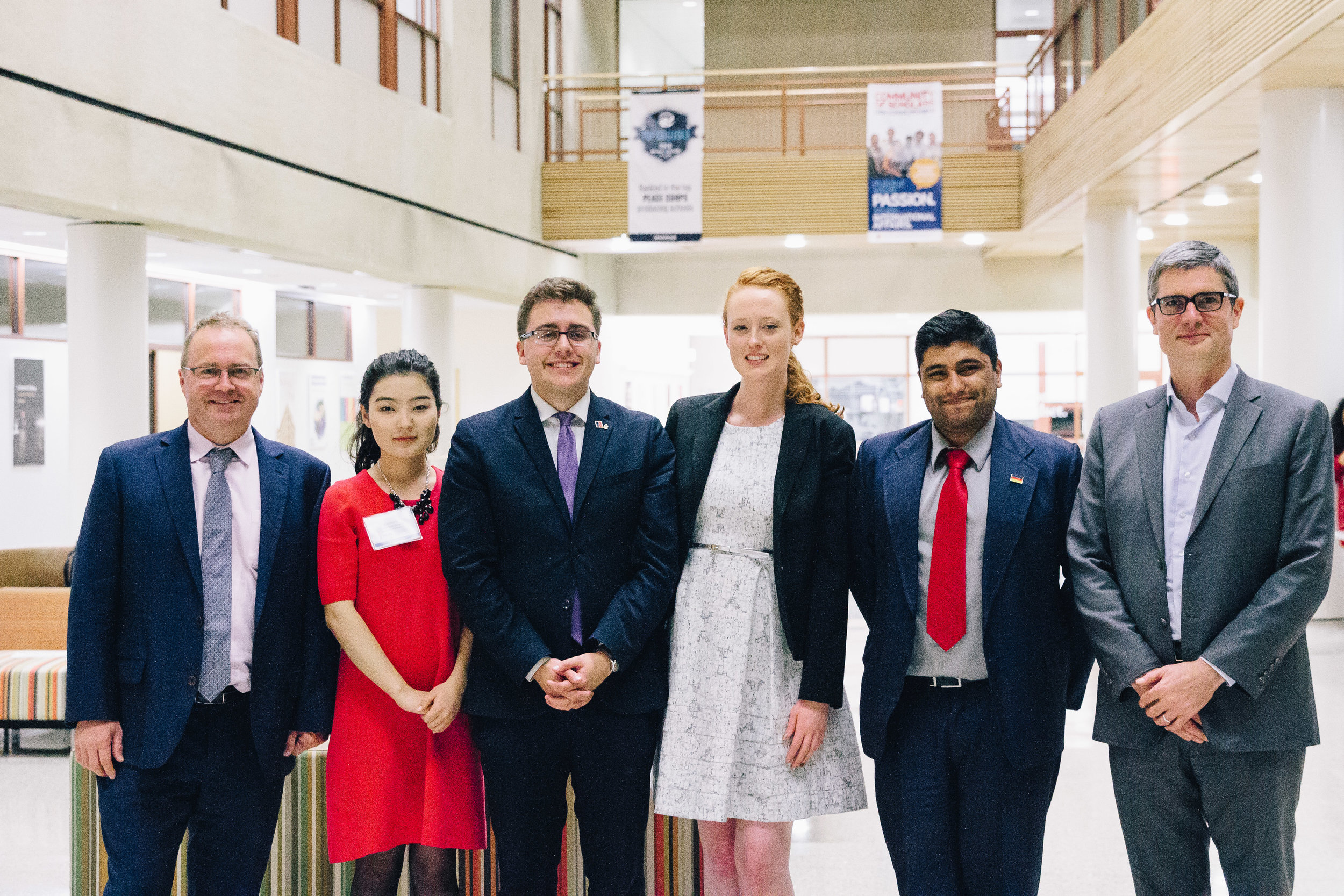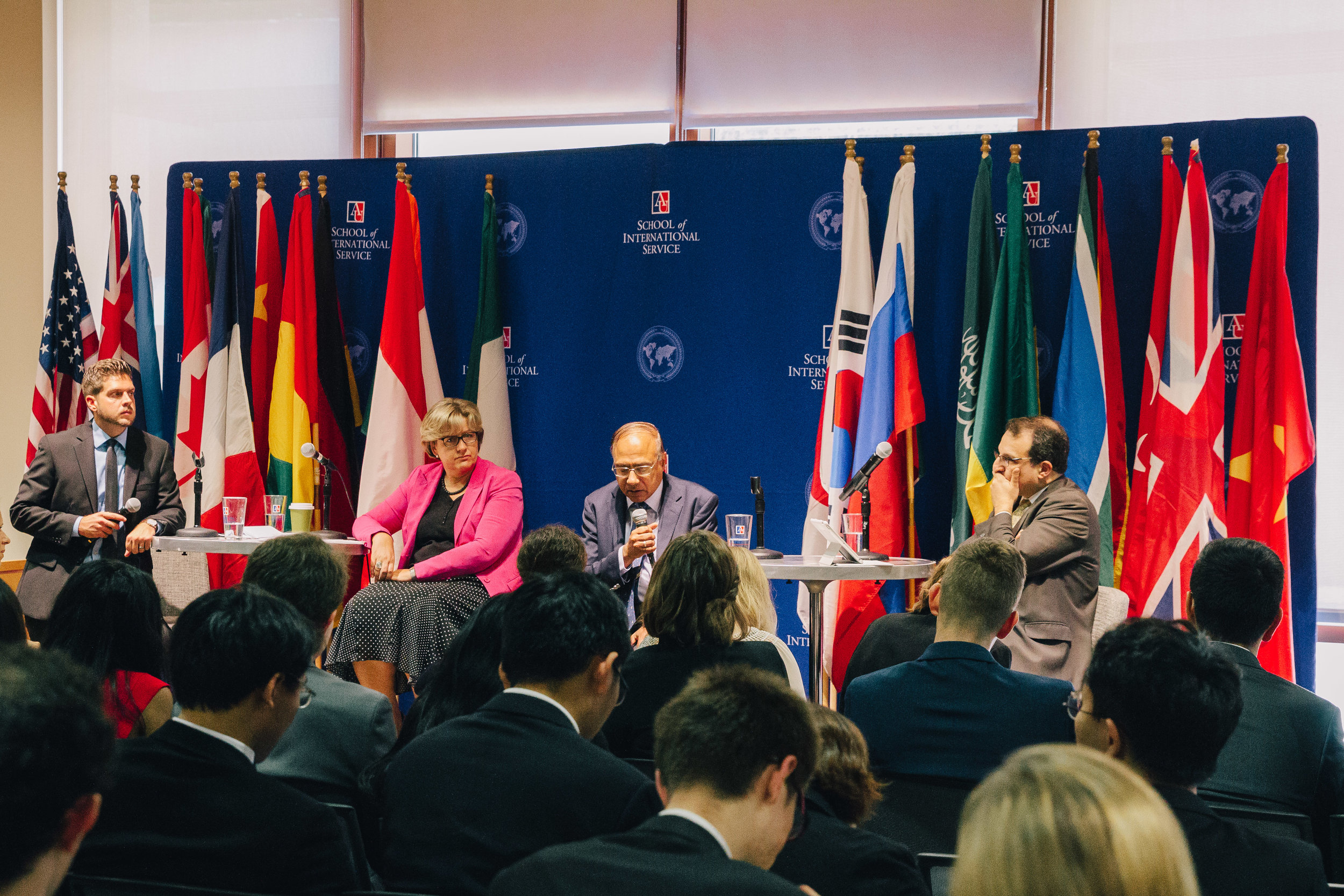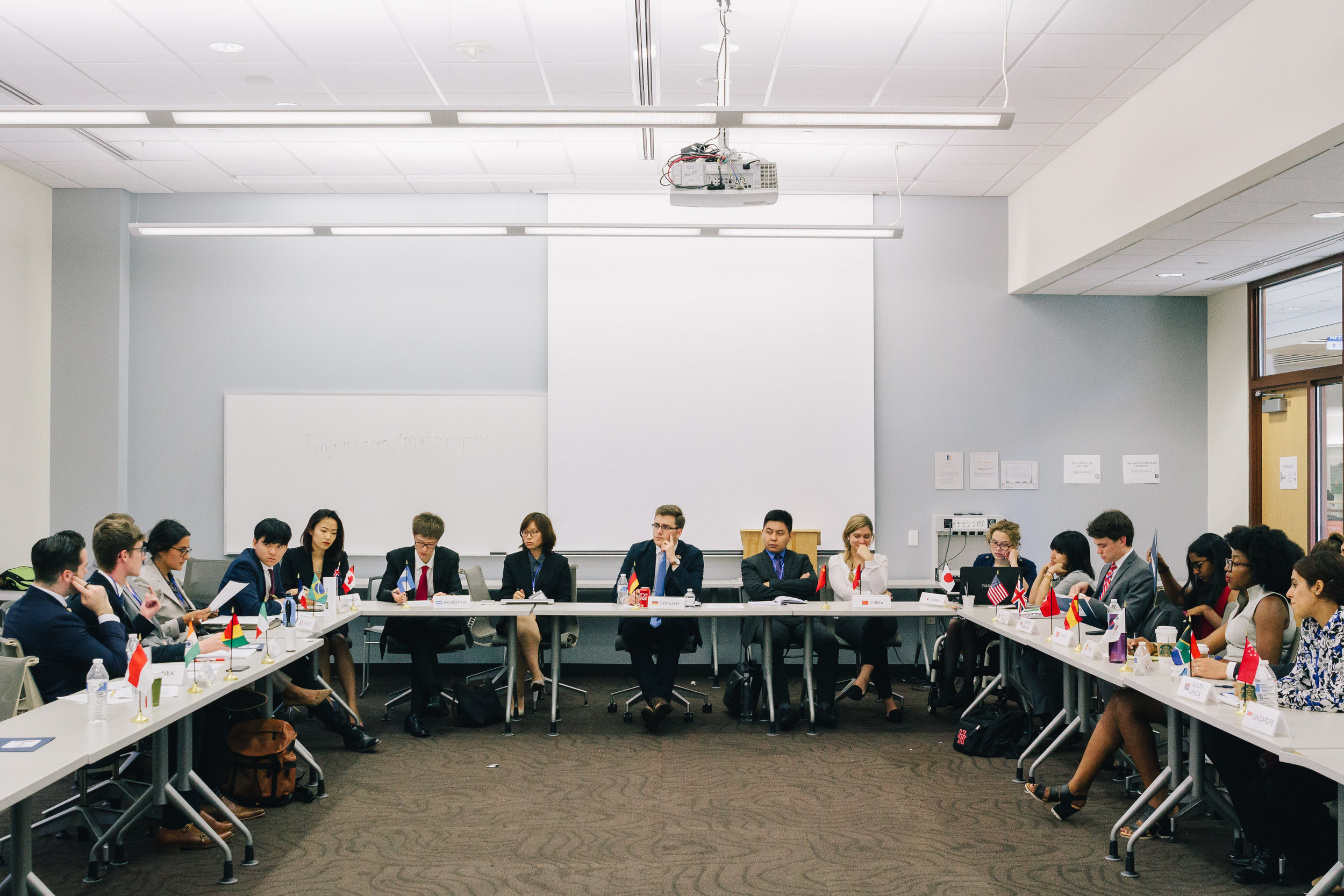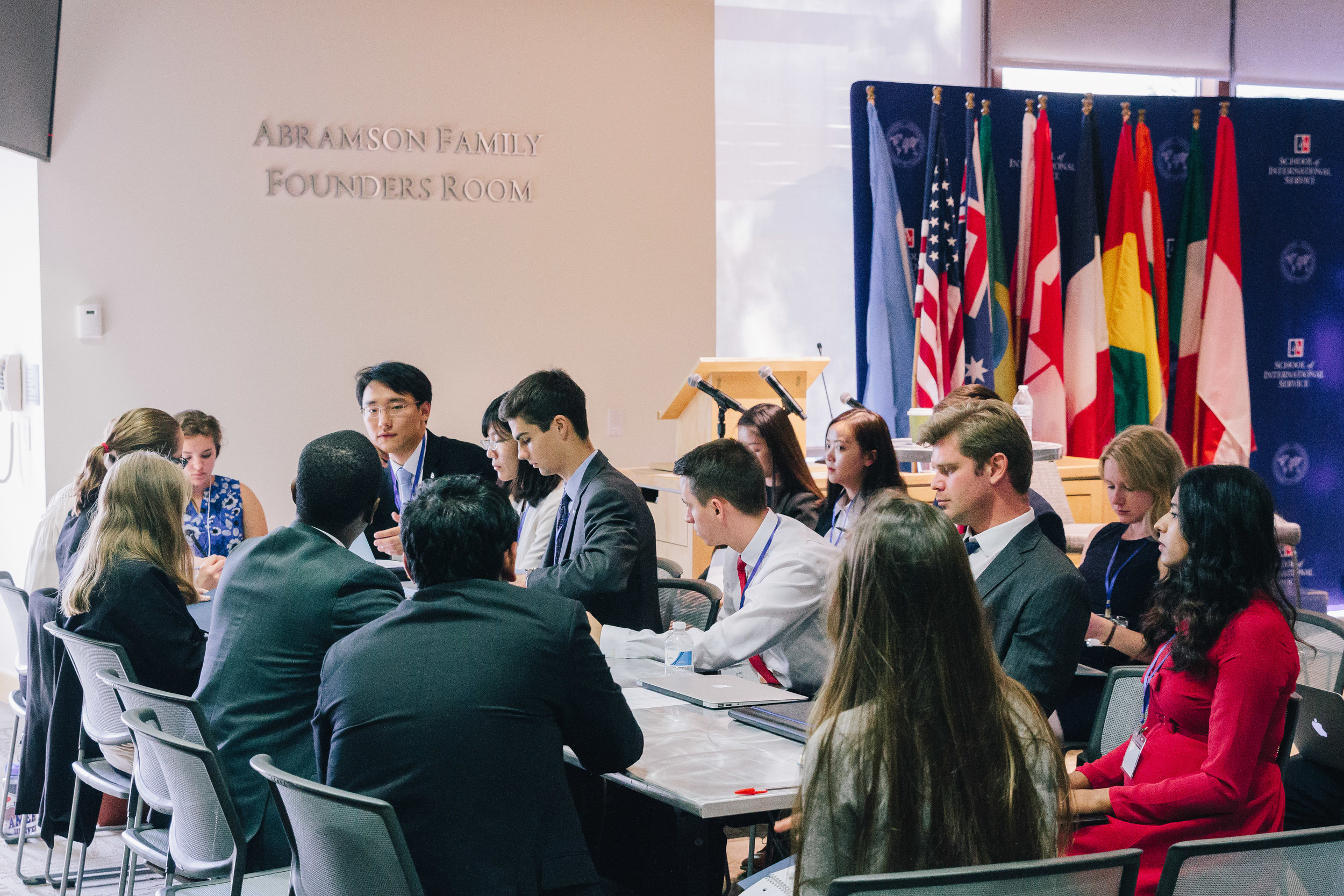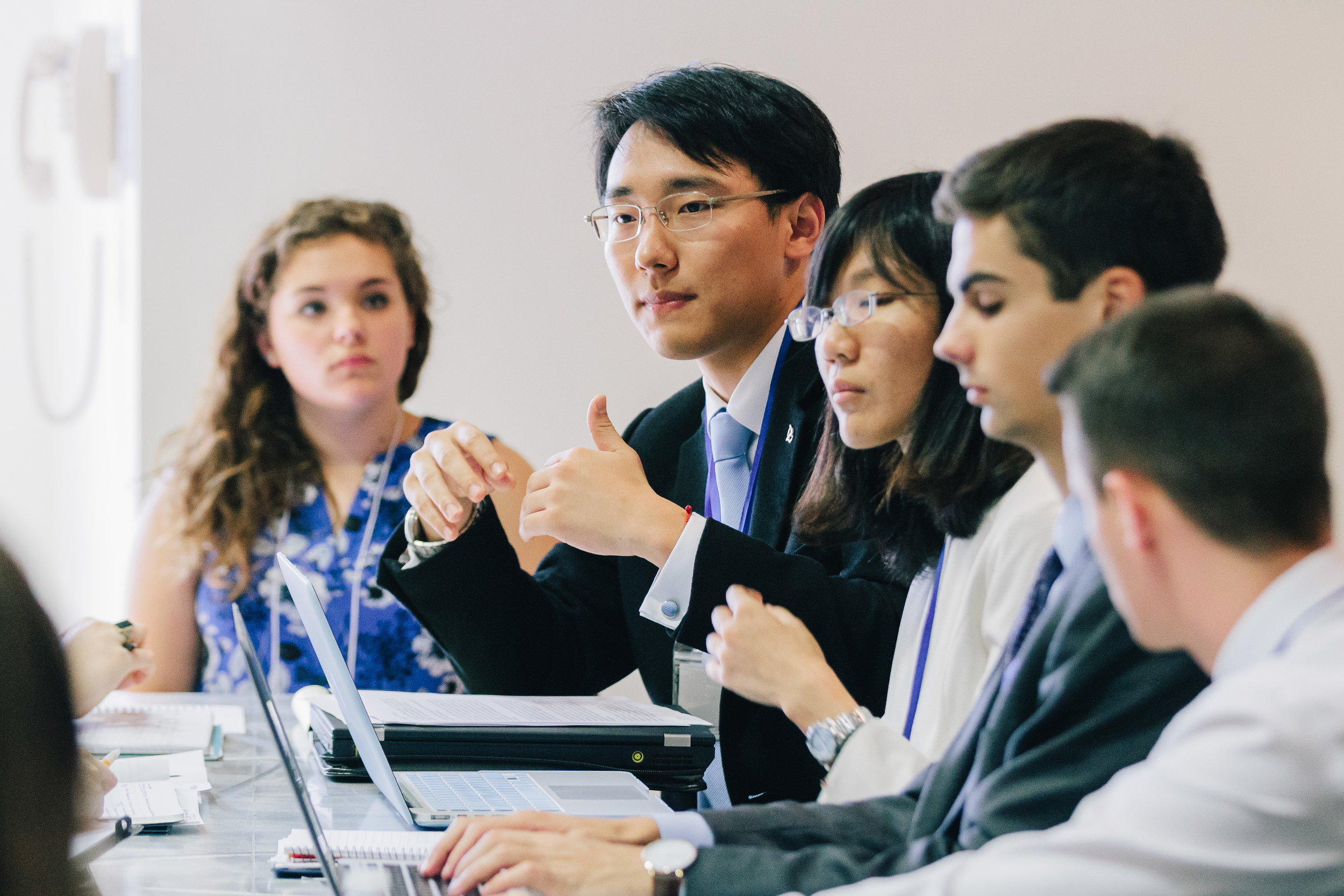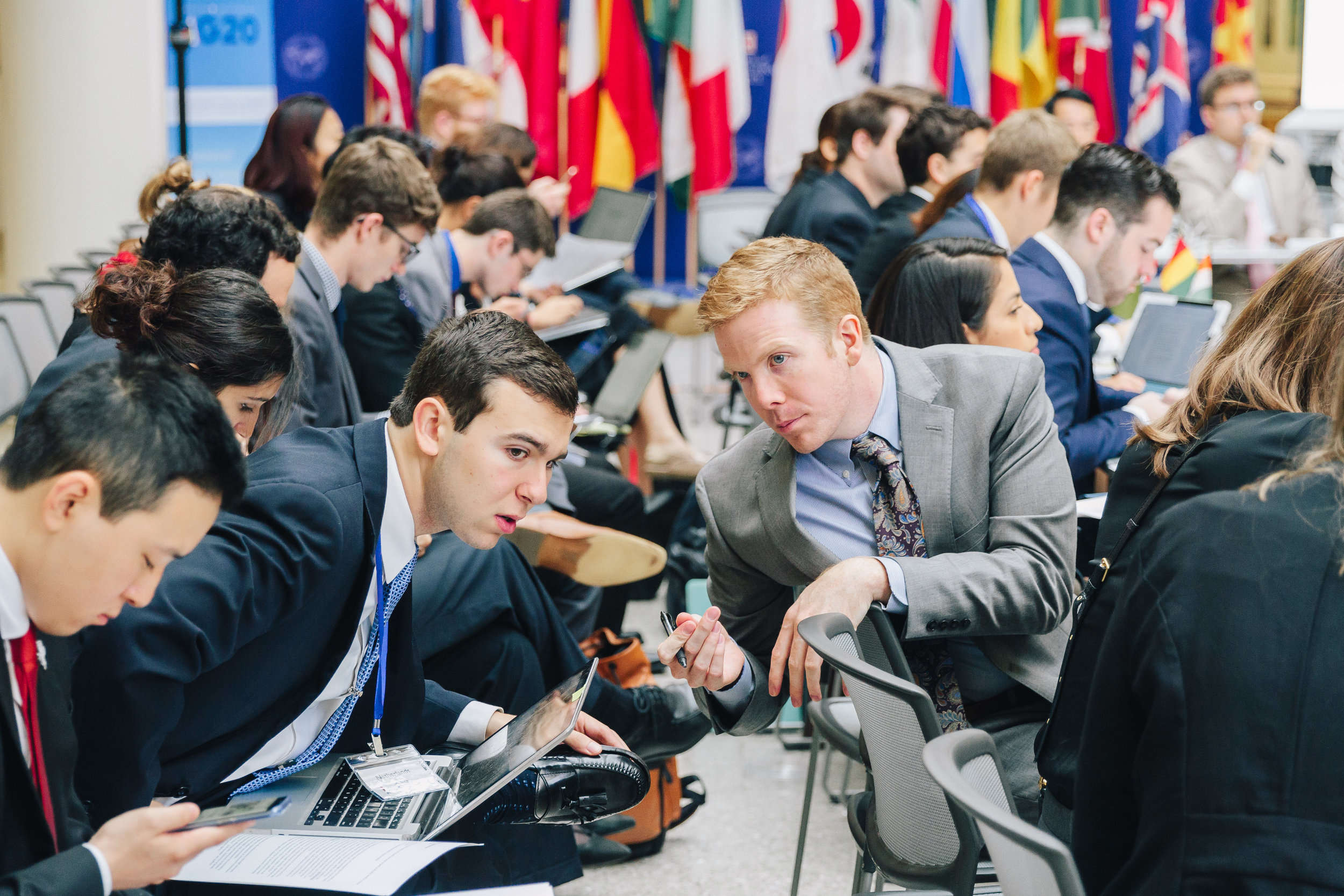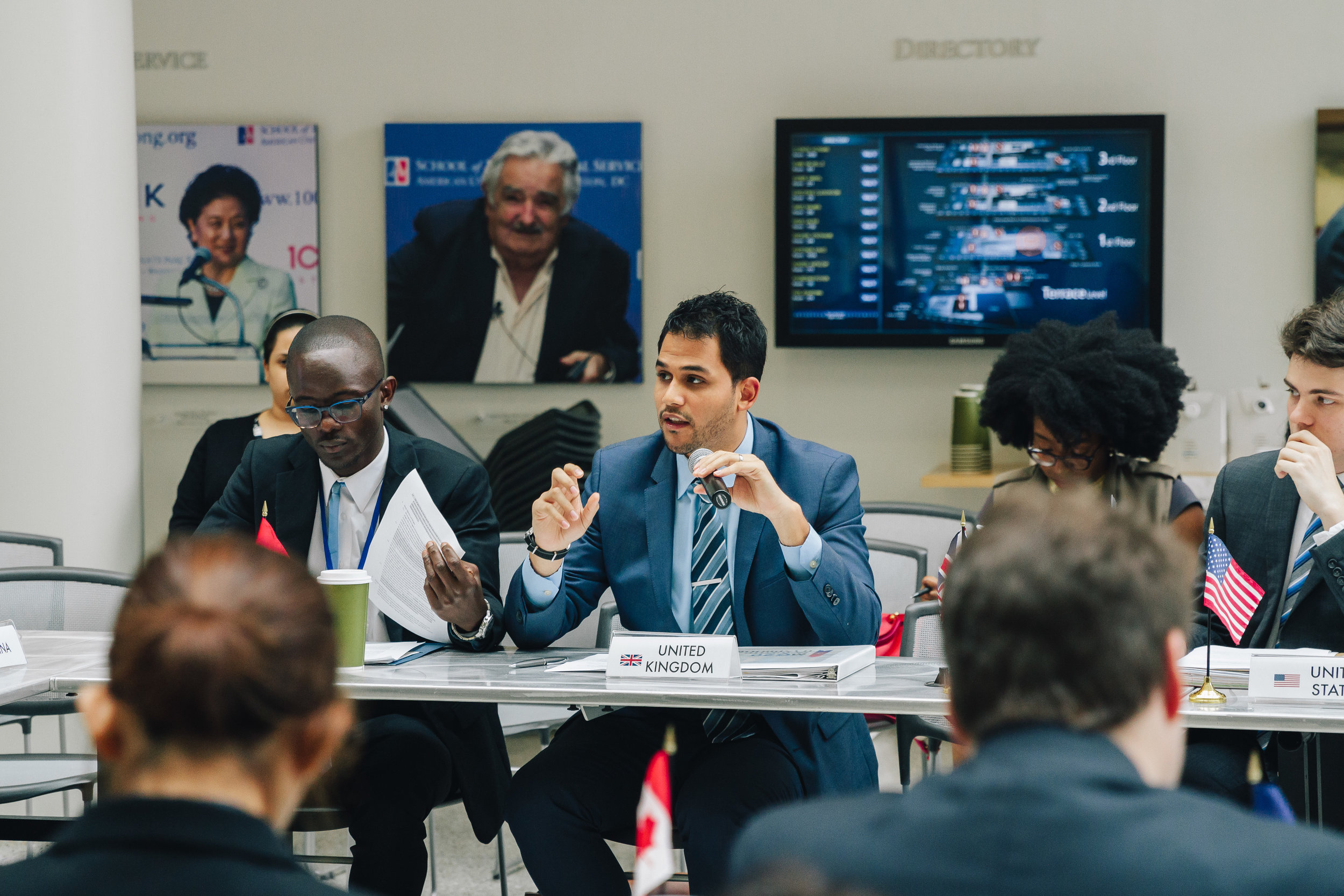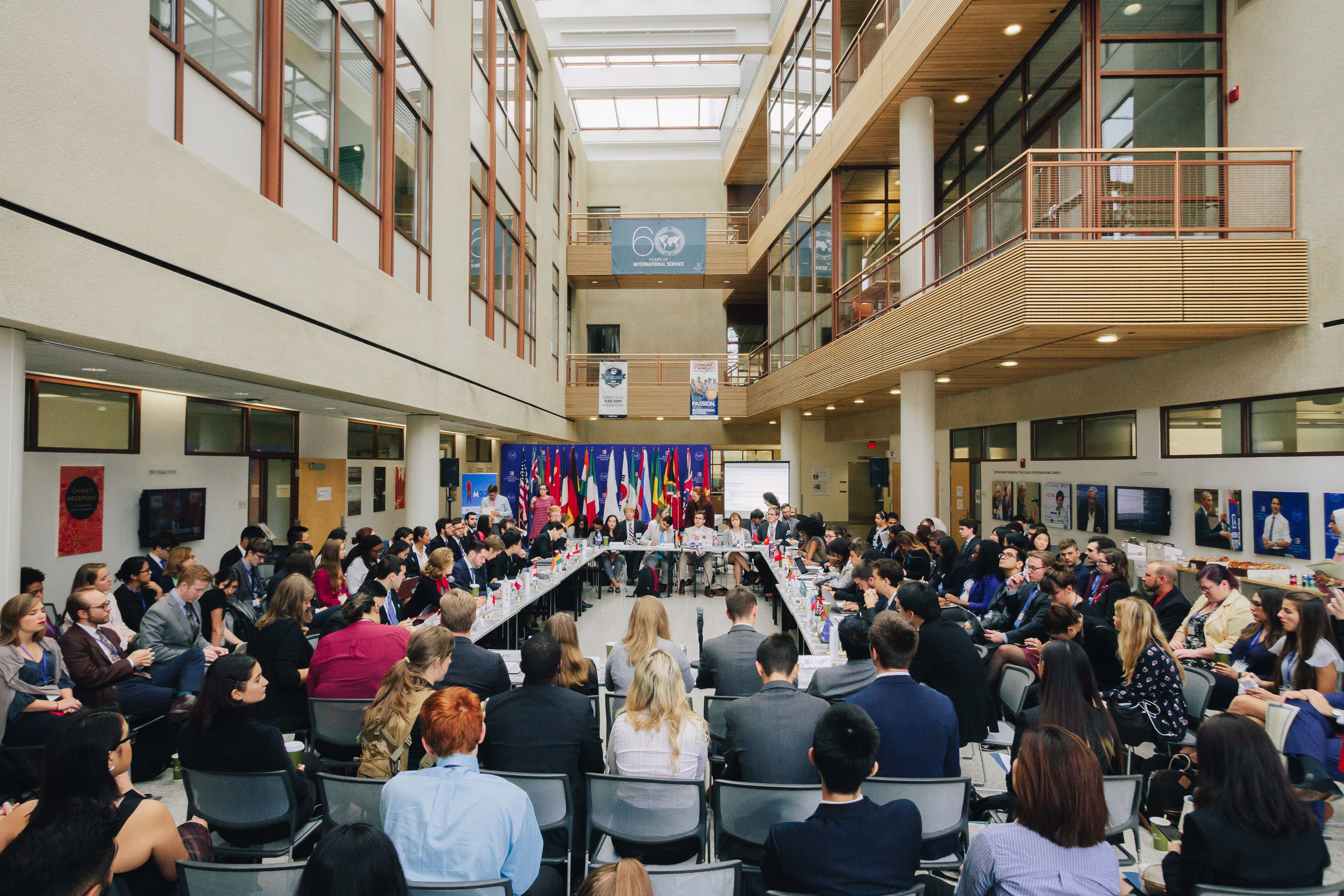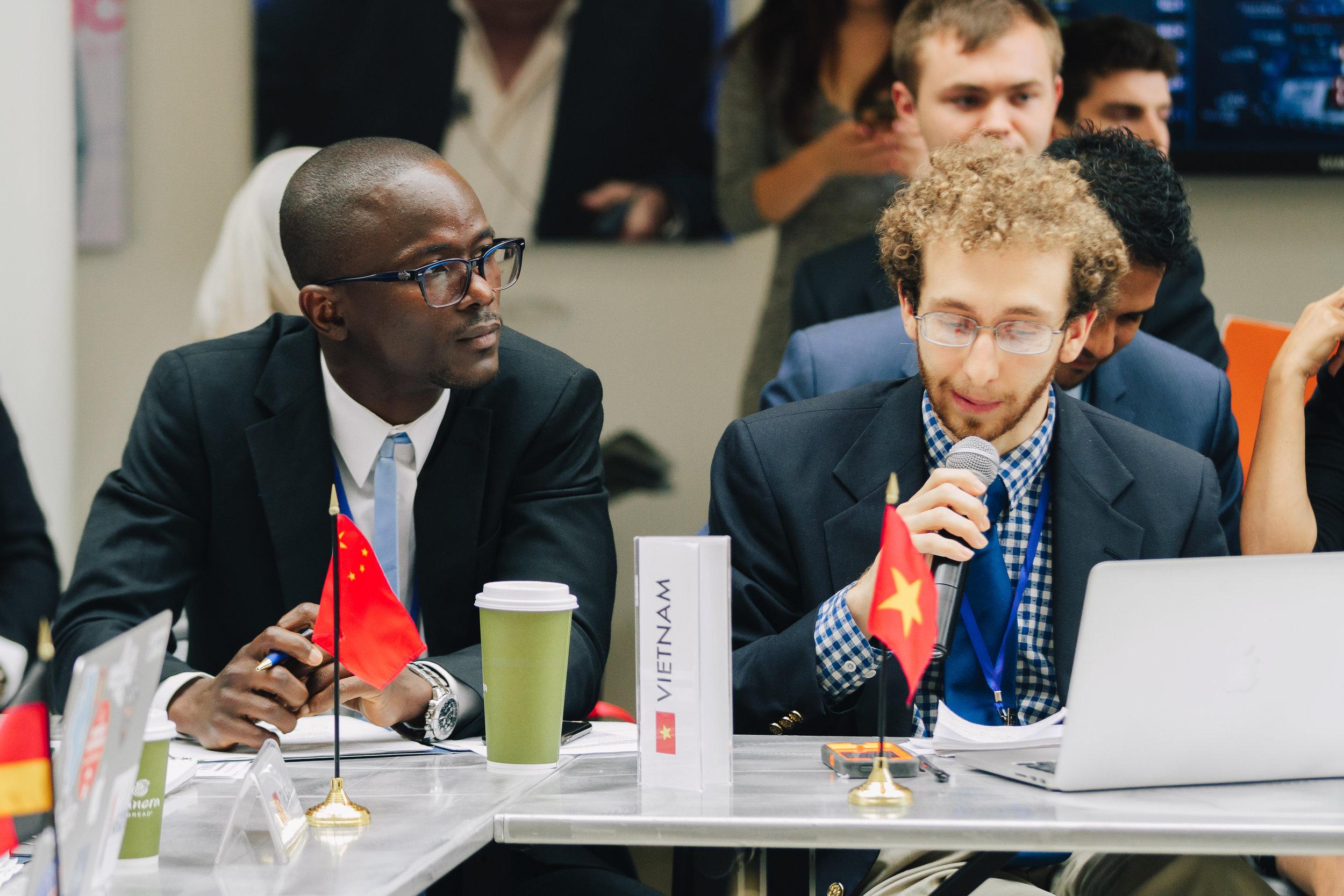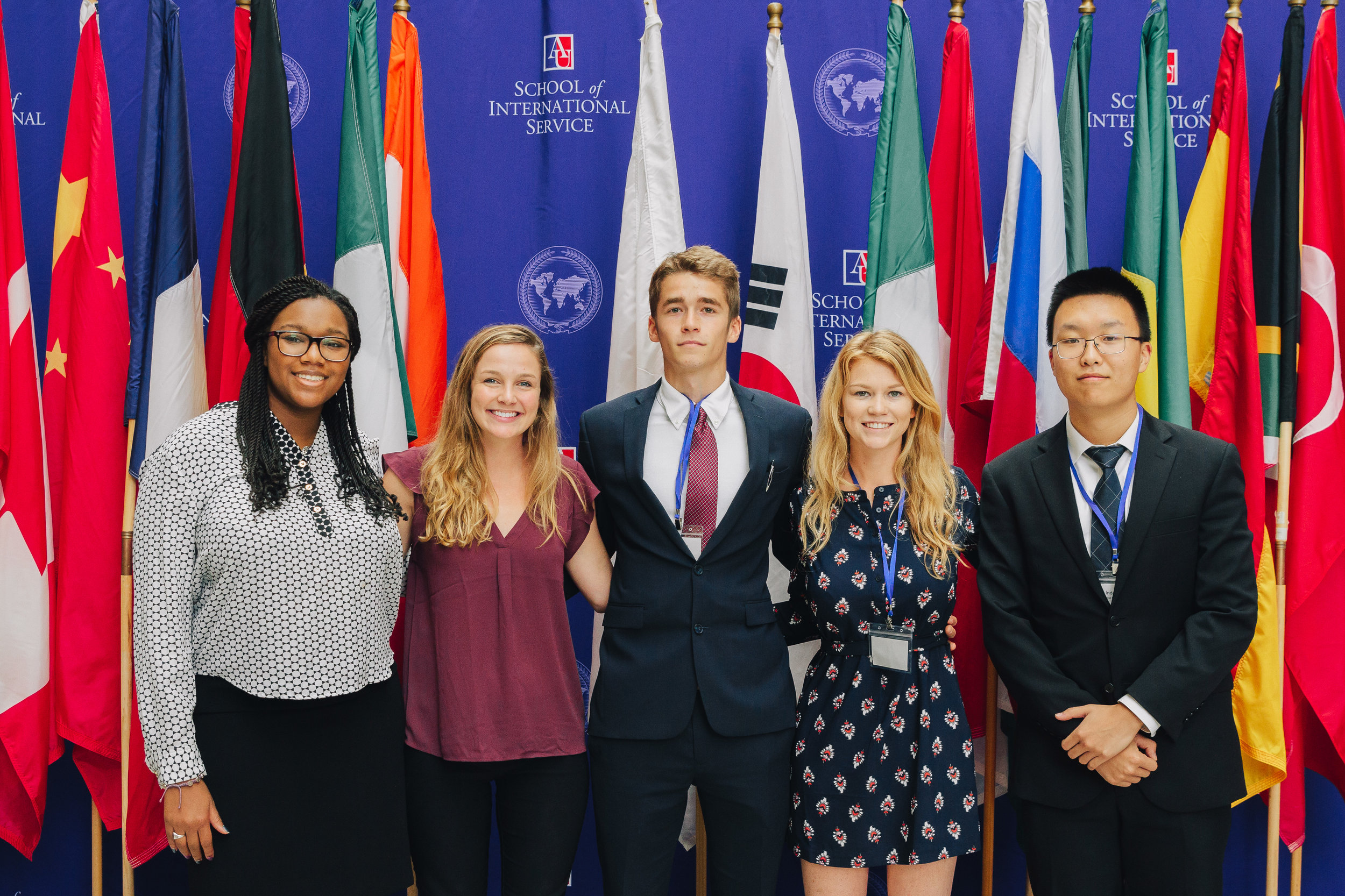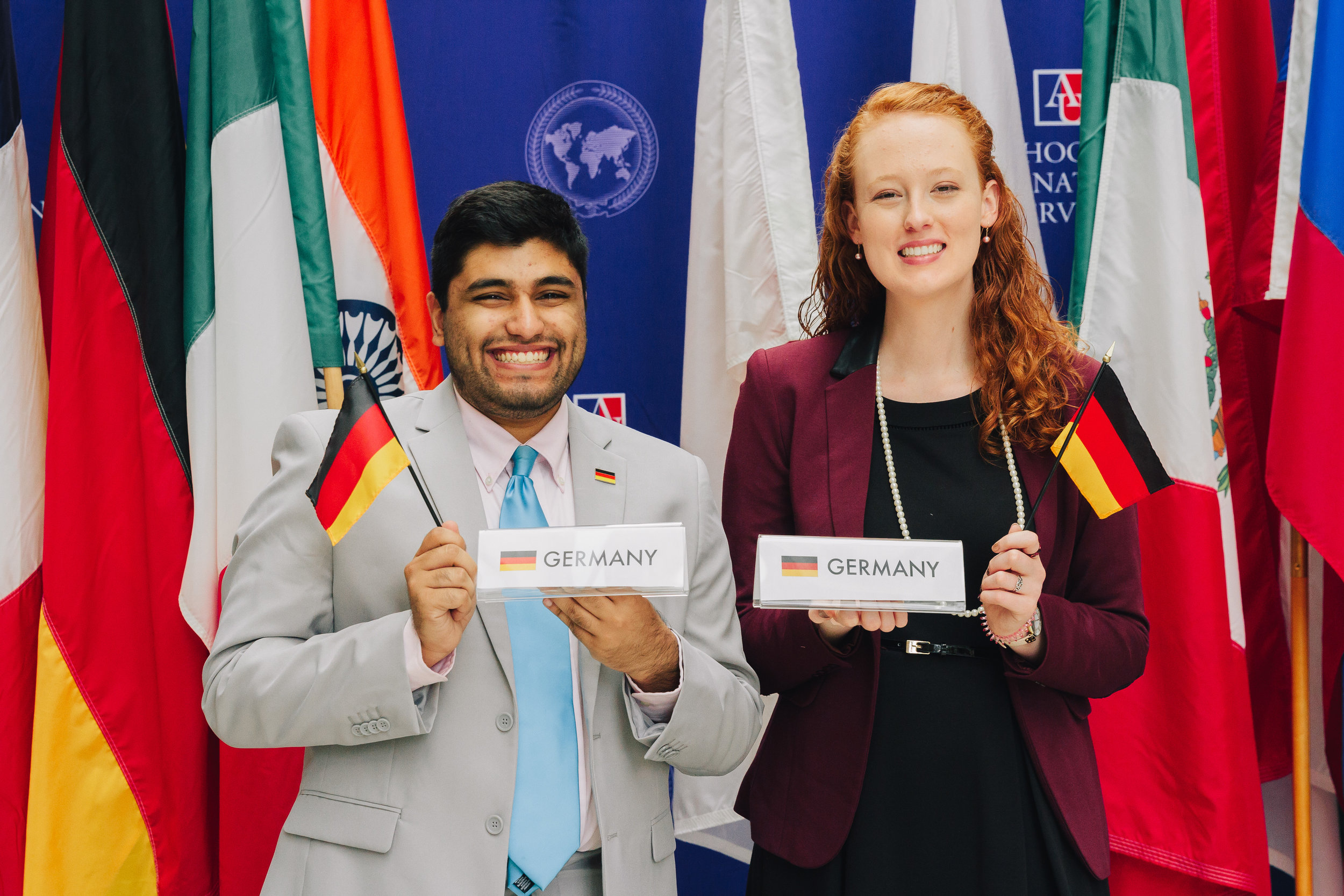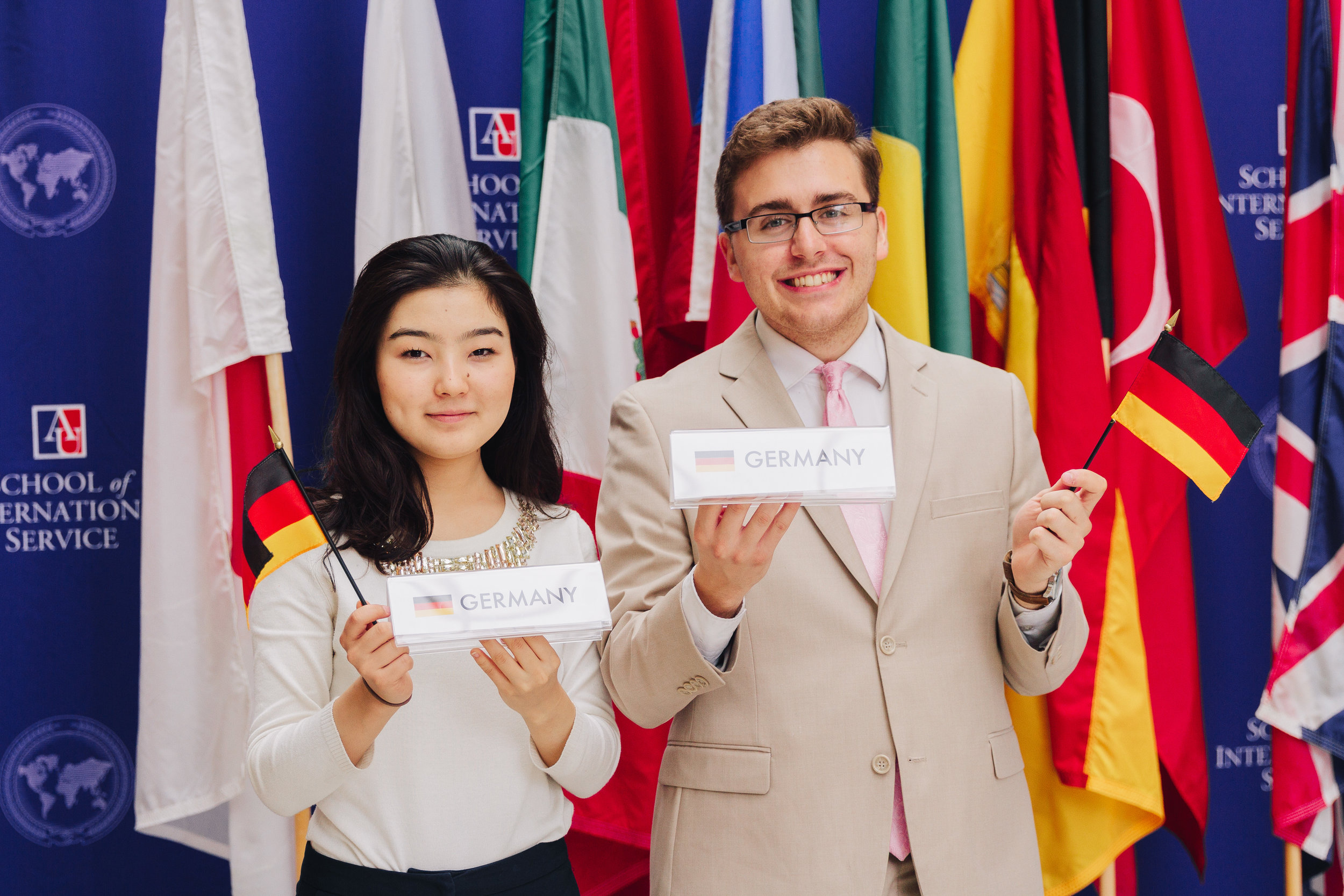Inaugural German Summit Recap
First fully accurate Model G20 Summit Takes Place at American University. Over 175 national and international delegates participated in the Summit. Armando Varricchio, Italian Ambassador to the United States was the keynote speaker.
Over the weekend of October 6th 2017, 175 undergraduates, graduates and young professionals participated in the first ever, fully accurate, US based simulation of the Group of 20 (G20) Leaders’ Summit at American University School of International Service. During the three-day summit, delegates immersed themselves in diplomacy, multilateral negotiations, and international economic affairs, honing their teamwork and public speaking skills in a unique learning environment. Delegates were challenged to preserve the interests of the nation they were representing while simultaneously negotiating solutions to the international community’s most pressing issues.
These issues were divided into two tracks: the Sherpa track and the Finance track. In the Sherpa track, delegates debated policies concerning climate change and energy, migration and refugees, and global development. In the Finance track, delegates discussed affairs such as the global economy, trade and investment, and labor and employment. Each track, chaired by American University students representing Germany, was required to reach a unanimous conclusion regarding the policies and wording that would be presented within the Summit’s main document, the Communique. Creating a document that upon which all nations agreed accurately represented the interests and integrity of the G20 Summit required extensive negotiation, collaboration and compromise.
Near the end of the Summit, delegates had the opportunity to apply the diplomacy and negotiation skills they had sharpened within their respective tracks at the Leader’s Summit, a joint negotiation session in which delegates from both tracks worked together to create a final draft of the Communique. A select few delegates also participated in a Special Session on Terrorism, in which they discussed how to best combat terrorism through both traditional and original means. The resulting document, the Special Statement on Terrorism, condemned all forms of terrorism and was an excellent representation of the conference’s purpose: solving international issues collaboratively and cooperatively.
Throughout the weekend, delegates also had the opportunity to engage with keynote speakers, including ambassadors, directors of international organizations, and fellows from think tanks. All of the speakers were intimately familiar with the inner workings of the G20 summit, and the challenges and complications delegates may face during the summit. Each speaker gave the delegates insight into the G20 Summit that aided them in all of their communications and negotiations.
For many delegates, the summit was an opportunity to develop their negotiation and diplomacy skills in a unique environment. Diego Soto, intern at the World Bank and representative of the United Kingdom, expressed his satisfaction with the experience, which has, "helped [him] to be able to understand how negotiation works, what kind of compromise that you have to have, and when to push hard on points that you believe are important."
For others, it was a way to gain experience in an accurate simulation of the G20 Summit. “[My graduate class] wanted to do something that really gave us that real world experience of what it’s like to work in International Relations,” said Mae Overstreet, graduate student at Appalachian State University. “We really like the Model G20 because it has allowed us to not only connect with others, but to dive into the issues and really get somewhere.”
Each and every delegate, no matter the initial skill level with which they entered the conference, learned something new by participating in this innovative program. Whether they strengthened their leadership, teamwork, negotiating or public speaking skills, delegates left on Sunday with a new understanding of the G20 and the cooperative spirit in which it is entrenched.
The next Model G20 Summit will take place at American University in the fall of 2018. Early registration will open in February.
Symposium Speakers
Andrew Spath MG20 Associate Director
Elke Kallenbach Minister Counselor, Head of Finance Section, Embassy of the Federal Republic of Germany, 2017 G20 Presidency
Gilles Alfandari Head, Multilateral Team, World Bank Group
Amar Bhattacharya Senior Fellow, Global Economy and Development, Brookings Institution
Watch the Symposium here.
Communique & Action Plan
The communique is the culmination of debate and negotiation. This document, passed by consensus, outlines the objectives and goals of the G20 in regards to each of the topics. Delegates also had an opportunity to share their individual country's action plan in carrying out the vision of the G20.
Read the communique and action plan here.
Award Winners
Team Awards
Best Delegation: United States (University of Houston)
Brinda Penmetsa
Nour Haikal
Jackson Crawford
Tanooha Veeramachaneni
Outstanding Delegation: United Kingdom (The World Bank Group)
Beverly Mbu
Caleb Johnson
Diego Soto Garcia
Ghanimah Al-Otaibi
Lamiss Al-Tashi
Sherpa Track
Best Delegate: Italy (American University: Jarrod Jeffcoat & Hannah Goda)
Outstanding Delegate: India (Mixed Team: Sheng Zhang & Xin Zhang)
Honorable Delegate: Spain (American University: Rafael Cestero, Jordan Cyr)
Finance Track
Best Delegate: China (Appalachian State University: John Neal & Greg Nelson)
Outstanding Delegate: IMF (American University: Jackson Malmgren & Frank Davis)
Honorable Delegate: Brazil (Organization of American States: Paulo Garcia Flores, Juan Jaramillo)

